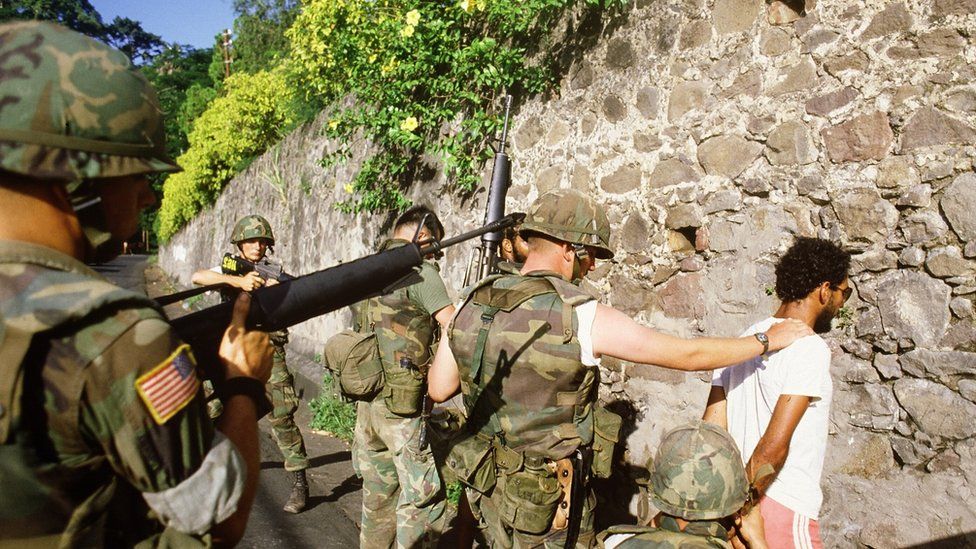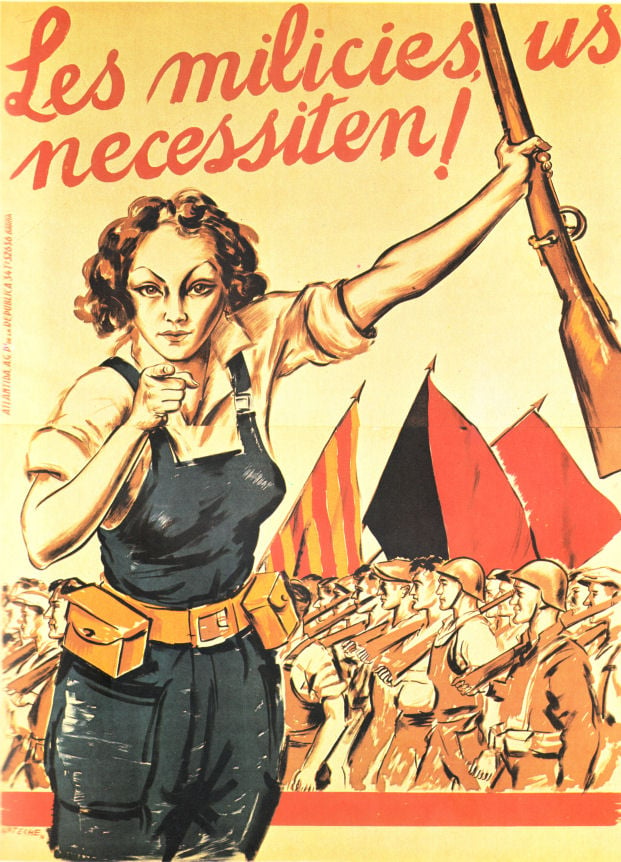- cross-posted to:
- workingclasscalendar
stahmaxffcqankienulh.supabase.co
- cross-posted to:
- workingclasscalendar
U.S. Invades Grenada (1983)
Tue Oct 25, 1983

Image: U.S. soldiers intervening in Grenada
On this day in 1983, the U.S. and six Caribbean nations invaded Grenada following the assassination of Maurice Bishop, overthrowing the left-wing government and killing dozens of civilians, an act with drew international condemnation.
The invasion, officially codenamed “Operation Urgent Fury”, was made up of a coalition of forces from the United States and six Caribbean nations, including Jamaica and Barbados.
Operation Urgent Fury and the subsequent military occupation led to the dissolution of the military government established after the assassination of Maurice Bishop, ousting the New Jewel Movement from power. The operation also caused the deaths of at least twenty-four civilians, eighteen of whom were killed when the U.S. Navy bombed a mental hospital.
President Reagan justified the invasion by claiming to be acting in the interests of 600 U.S. medical students on the island. Historian Howard Zinn has noted that there was no evidence these students were in danger and that, in the same period, Reagan’s administration was actively supporting the government of El Salvador, which had already killed American citizens.
The invasion drew widespread condemnation. The United Nations General Assembly voted 108 to 9 in condemning the act as “a flagrant violation of international law”. Margaret Thatcher publicly supported the action, but opposed it in private, telling President Reagan directly:
“This action will be seen as intervention by a Western country in the internal affairs of a small independent nation, however unattractive its regime. I ask you to consider this in the context of our wider East/West relations and of the fact that we will be having in the next few days to present to our Parliament and people the siting of Cruise missiles in this country…You asked for my advice. I have set it out and hope that even at this late stage you will take it into account before events are irrevocable.”
- Date: 1983-10-25
- Learn More: en.wikipedia.org, libcom.org.
- Tags: #Assassinations.
- Source: www.apeoplescalendar.org
deleted by creator
Reagan was a product and didn’t exist in isolation. He was the culmination of a broader strategy and could have been swapped for any other viable candidate. He was particularly viable, but the policies would have been the same. It’s important to note that by the time the Democrats retook power in the 90s, the same movement that swept Reagan into power had captured the Democratic party as well. This is how neoliberalisim became the default ideology in the United States. It’s now a forgone conclusion that this will be the guiding ideology of US policy.
You know you’re a fucking psycho when even Maggie Thatcher tells you to chill thr fuck out.



